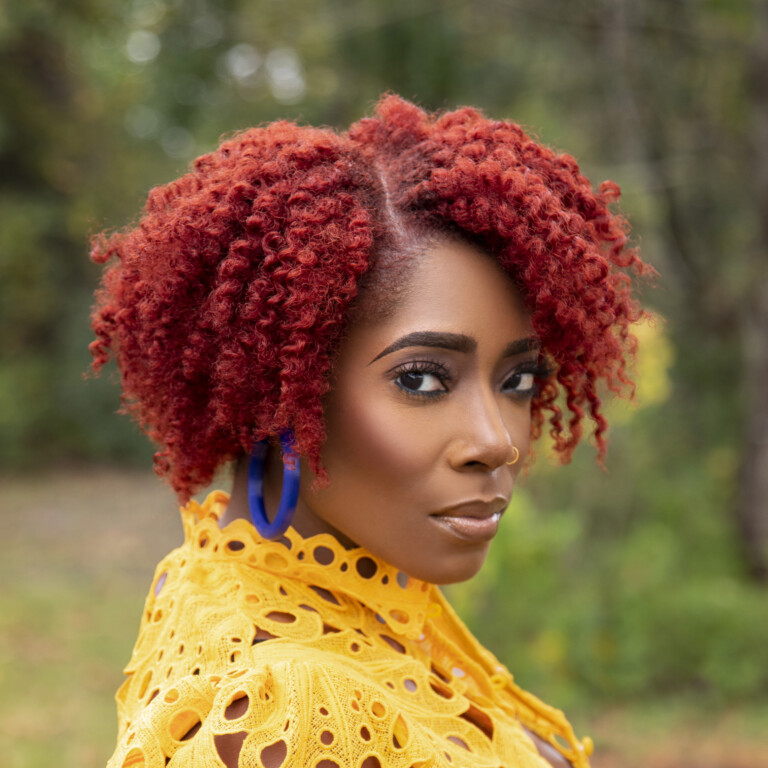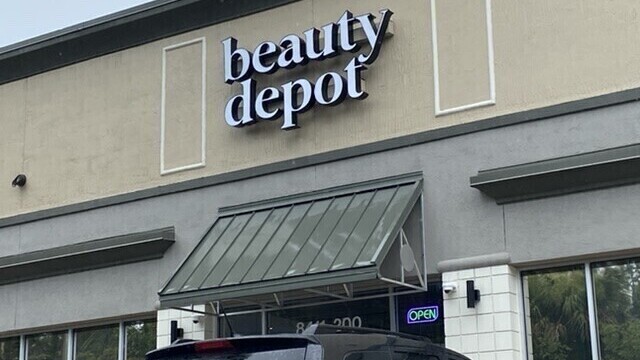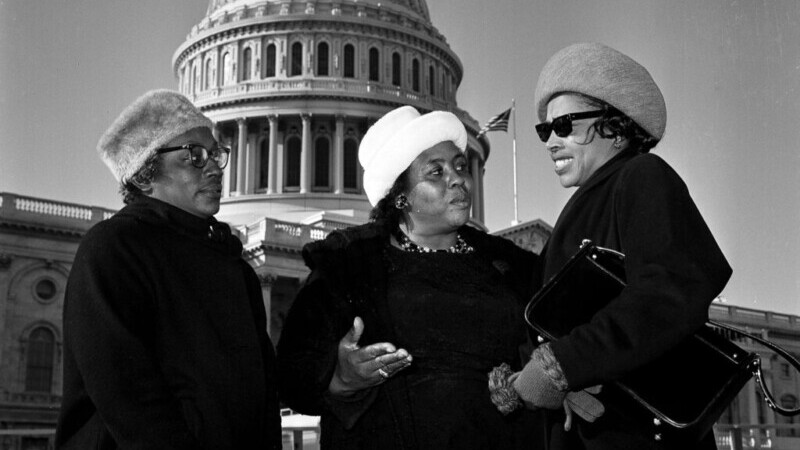
When I walked into the new Beauty Depot store on Southside Boulevard for the first time, it was like the heavenly hosts began harmonizing an angelic chorus as I was blinded by the light. It’s the nicest beauty supply store I’ve ever been in.
I said as much, out loud, upon entering and standing slack-jawed in front of the door. Another Black woman in the store who overheard me cocked her head and said with a knowing look that was half side-eye, half eye roll, “You know why.”
I did.
Beauty supply stores serve as a barometer for the quality of a neighborhood. A beauty supply, liquor store and currency exchange specializing in check cashing and payday loans are a common triumvirate, along with a church (generally Baptist, AME or Church of God in Christ) a gas station and a fast-food joint. (Bonus points if the fast-food place specializes in fried chicken.) These easily observed triads line either side of a block. They’re sentient sentinels signaling the amount of riff raff the neighborhood might see when the sun goes down and the busted street lights flicker with no intent to fully flash on.
The first time I went to a Beauty Depot in Jacksonville, I traveled to Edgewood Avenue. Then I learned of the one on Atlantic Boulevard near Regency. I have traveled to that location for the decade I’ve lived here when in need of Black girl beauty supplies. If you’re familiar with those locations, you know they look nothing like Beauty Depot’s new Southside store.
The Southside location takes the place of the Goodwill that moved a few blocks down. Beside it is The Learning Experience, a daycare center where child care begins as early as 6 weeks and costs upwards of $1,500 a month. I took a tour of the center six years ago before I returned to work after having my son. It is beautiful. It did not smell like OdoBan, bleach and cafeteria food. The babies learn sign language to communicate. The staff was attentive, full of smiles and Disney friendly voices. The director at the time had no qualms when she quoted me the tuition. In this neighborhood, you will pay for affluence.
So imagine my surprise seeing the Beauty Depot sign go up. I was used to the quality of the other Jacksonville locations — when you’ve been in one hood beauty supply, you’ve been in them all. The windows are dingy and don’t look like they’ve been cleaned in decades. The tile floors are cracked and dusty. Mannequin heads have seen better days, and the wigs atop them are generally askew. Burglar bars may cover the windows and doors, if not a steel garage-type covering, and a rickety metal detector may be placed at the entrance. The braiding hair is plentiful. The owners are Asian-American and the workers are Black women who will chat you up about your purchases.
Last year, when I went into Beauty Depot on Atlantic to buy hair for braids, I was 37 weeks pregnant. The cashier pointed at my protruding belly and said, “You buying this here before that right there?”
“Yeah, girl,” I said with a smile as she rung me up.
These experiences are familial, communal amongst Black women. That’s why I’ve never had a problem going into a “Black” neighborhood to get my supplies. But herein lies the problem: Before the new Southside location, these stores only served a “certain kind” of clientele: mostly minority (i.e. Black), assumed low-income and stereotyped uneducated. By nature of their clientele’s location, the stores bore the scars inflicted by racism and redlining. Their upkeep was minimal, as was apparent of the businesses surrounding them. If there were any.
Such is not the case with the new store on Southside. Yes, it’s new, and it carries all the markers of “newness,” from the fresh coat of paint on the walls that permeated the air inside. But what was different was its roll-out. A local radio DJ played in the parking lot, and gift bags were given to customers on grand opening day this month. This store assumed the barrier to entry by the very nature of its neighborhood.
But the gworls showed up to see what was the fuss. In bonnets and mink lashes they came. In bodycon dresses and booty-length braids they came. With weaves and lace-front wigs with the shellacked baby hairs they came. With the fresh set of acrylics designed in rhinestones, tattoos, and colorful locs they came. And I was glad to see them.
There is this lasting belief among minorities that when we move up in socioeconomic status we must lose the identifiers of our youth. We change ZIP codes, nicknames and slang. We code switch, wearing our hair and clothing in palatable styles so we can keep our “good job.” We stop patronizing the Beauty Depots and instead opt for Sally Beauty, although they never have exactly what we’re looking for, be it the extra-hold gel that doesn’t flake or the jars of Dax and Sulfur8. We lose who we were to become what we are.
But perhaps a sea change is coming. Perhaps the increasing attainment of education and economic power for Black women has been observed by businesses who want in on our growth and evolution. Like projects torn down for gentrified townhouses, failing schools turned charter, and police calls for noise violations and loitering, the new Beauty Depot location is a reminder that businesses follow the trends of the culture, and as Black women we are the standard, the culture creators.
Beauty is a billion-dollar, hetero-normative industry that preys on women’s insecurities. It reinforces European ideals to those who will never meet the standard of whiteness. However, for all the negative social markers a beauty supply store signals, the new location on Southside Boulevard indicates we can all move on up together.
It’s no longer one way or another but a both and. As much as many Black neighborhoods have been historically scrounged and devoured of their resources — abandoned when we buy in, burned when we build our own, razed for a highway, or rezoned out of our possession to languish in squalor due to bureaucratic indecision — as Black people we are sometimes eager to escape what we’ve always known for neighborhoods across bridges, where the bus routes are few and infrequent.
So what is a girl looking to buy bags of bundles to do? Sis, my only advice is to get yours, especially when you can get it no matter where you live.

Nikesha Elise Williams is an Emmy-winning TV producer, award-winning novelist (Beyond Bourbon Street and Four Women) and the host/producer of the Black & Published podcast. Her bylines include The Washington Post, ESSENCE, and Vox. She lives in Jacksonville with her family.






